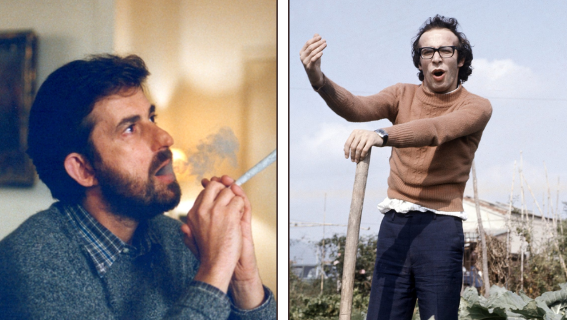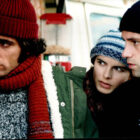Nanni Moretti and Roberto Benigni are two of Italy’s most beloved filmmakers, each with a distinctive comedic style that has left a significant mark on Italian cinema. While both directors have a talent for blending humor with social commentary, the tone, approach, and themes of their comedies differ greatly. Moretti’s work is introspective and often political, while Benigni’s is exuberant, physical, and emotionally uplifting. These contrasts have shaped their identities as two unique voices in Italian film.
Moretti’s Intellectual and Political Comedy
Nanni Moretti’s comedy is characterized by its sharp, intellectual humor and its deep engagement with political and social issues. Films like Caro diario and La stanza del figlio showcase Moretti’s introspective nature, where personal crises are intertwined with a critique of contemporary Italian society. His humor is often dry, subtle, and laced with irony, offering a more cerebral experience for the viewer.
Moretti’s characters frequently act as mouthpieces for his own reflections on politics, religion, and cultural values. In Palombella rossa, for example, he explores the disillusionment with leftist politics in Italy, all through a mix of absurd humor and thoughtful dialogue. Moretti’s comedy isn’t about making the audience laugh out loud; it’s about provoking thought and reflection through humor that often borders on the melancholic.
Benigni’s Physical and Emotional Comedy
In contrast, Roberto Benigni’s comedy is exuberant, highly physical, and full of heart. Known for his boundless energy and optimism, Benigni’s films like Life is Beautiful and Johnny Stecchino blend slapstick humor with emotional warmth. Benigni often uses his body and facial expressions to create humor, relying on exaggerated gestures and physical comedy to entertain.
Benigni’s comedy also leans heavily on sentimentality, particularly in Life is Beautiful, where he mixes humor with deep emotion to create a poignant narrative about love and survival during the Holocaust. His characters are often optimistic and naive, finding humor and joy even in the darkest circumstances. Benigni’s approach is more about creating a feel-good atmosphere, where humor serves as a bridge to deliver emotional and moral messages.
Tone and Themes
The tonal difference between Moretti and Benigni is striking. Moretti’s films tend to carry an underlying sense of disillusionment or critique, even when humorous. His work often deals with personal or societal struggles, using humor as a tool to express frustration or highlight absurdities in life and politics. Benigni, on the other hand, infuses his comedies with warmth, lightness, and optimism. His humor often aims to uplift and provide a sense of hope, even in the most tragic circumstances.
Where Moretti’s films can be seen as existential and introspective, Benigni’s are more extroverted and joyous. This contrast makes Moretti’s comedy more suited to an audience looking for intellectual engagement, while Benigni’s resonates with those seeking laughter and emotional catharsis.
Comedy as Social Commentary
Both directors use comedy as a means of social commentary, but in very different ways. Moretti critiques Italian politics, bureaucracy, and the Catholic Church with a biting, sarcastic wit. Films like Il caimano take aim at political figures like Silvio Berlusconi, offering a more cynical and critical look at Italian society. Benigni, while also addressing serious topics, does so with a lighter touch. His social commentary is often wrapped in humor that emphasizes the resilience of the human spirit, making it more palatable and emotionally accessible.
Nanni Moretti and Roberto Benigni represent two contrasting approaches to Italian comedy. Moretti’s humor is intellectual, introspective, and often political, while Benigni’s is physical, emotional, and optimistic. Both directors have left an indelible mark on Italian cinema, but they appeal to different sensibilities. Where Moretti provokes thought and reflection through his satirical, often bittersweet lens, Benigni inspires laughter and hope with his joyful, heartfelt approach. Together, they highlight the diversity and richness of Italian comedic tradition.
Watch the movie on Movieitaly+
Read more articles here!






